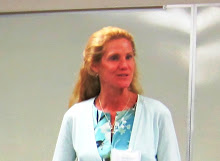A number of present and former leaders in the city of Somerville weighed-in with their points and questions for Governor Patrick and his plan to bring casino gambling to Massachusetts. The tone of the article was respectful and rightly focused on their concerns with his proposal to legalize class III gambling in Massachusetts.
It was refreshing to read an intelligent and concise description of the concerns of these experienced leaders. Most welcome are the points about impacts on children, education, character of our communities and the Commonwealth and a commitment to find better solutions to fiscal challenges.
If the link doesn't work here's the letter below:
http://www.wickedlocal.com/somerville/news/x688585097
SomervilleJournal, 3/12/08
Open Letter to Deval Patrick on Casinos in Massachusetts
Somerville - Dear Governor Patrick:
Many of us worked hard for your election and we are glad that you are trying to make Massachusetts a better place. We want you to succeed.
We’re writing to you today because we strongly believe that casinos will harm our state. They risk damaging families, distracting students, undermining efforts to attract new businesses, and marring the quality of life which draws and retains citizens to our beloved Commonwealth.
Your analysis of introducing casinos to Massachusetts overstates the benefits and understates the costs. We believe that the rush to gambling reveals many disturbing questions. For instance there is strong evidence that:
1. Casinos may steal from local businesses. Casinos have been proposed as a way to corral the estimated $800 million a year that Massachusetts residents may be spending in the Connecticut casinos. The Greater Boston Chamber of Commerce study projected this week that residents of our state will provide between $1.5 and $1.75 billion in new gambling dollars to these new casinos. This means that almost a billion dollars of discretionary spending will move from other parts of our local economy into gambling.
Question: How many of our local businesses will suffer losses? How many of these will close? How many workers will lose their jobs?
2. Casinos may trigger a “casino arms race.” The same study estimates that $550million in gambling revenues will be spent by visitors coming from outside Massachusetts.
Question: Will the people of Connecticut, Maine, New York, and Rhode Island really give up their own casinos to place bets at ours?
Question: And by building more casinos, won’t we be launching a “casino arms race” in which every state feels it has to protect itself by building new casinos and creating more gamblers?
3. Casinos fuel addictions. Every gambling addict, in addition to their own gambling losses, can cost $13,000 a year (or more) to others – in bad checks,embezzlements, damaged families, lost work time, and so on.
Question: Has the number and cost of compulsive and addicted gamblers in been calculated? Can we justify wrecking so many peoples’ lives as a way to boost revenue in the short term?
4. Casinos increase crime. Studies of casinos in other parts of the country – Atlantic City, for example – also indicate that crime increases around casinos.
Question: Has Massachusetts calculated how much more prostitution, loan sharking, assaults, break-ins, etc.will result from the contemplated expansion of gaming?
5. Casinos often fail as an economic development strategy. It can be a “fool’s gold” that filches land, capital and other resources away from productive economic development.
6. Casinos contradict the governor’s environmental goals.
Questions: Has the administration calculated the number of new motor vehicle trips these “destination” casinos will engender? How much open space is dug up and paved? What are the other environmental impacts? What will the “carbon footprint” of these new casinos be?
7. Casinos may also damage Massachusetts’ reputation as a center of high quality education and high-tech economic development. Casinos undermine the lessons we are seeking to teach our children by offering fraudulent enticements to our teenagers and students. Hard-working parents, teachers, and professors have labored to convey the message to children that getting a good education and working hard is essential to success. Business leaders and public officials are trying to attract executives on the grounds that we support intelligent investment in new ideas to build the twenty-first century economy. Casinos violate those principles.
Question: How can we teach our children to avoid other high risk practices like drinking and drugs, when we build casinos as our new pleasure palaces, and supposed economic engines?
We understand your desire to bring revenues and jobs to the Commonwealth, especially in these discouraging economic times. Yet, sharing your spirit of hope, we feel confident that alternatives exist. Once we have rejected the false promise of casinos, then together we can find a better future for Massachusetts.
Sincerely yours,
State Representative Denise Provost
The Rev. Dr. Robert Kinloch Massie (former Democratic nominee for Lt. Governor)
The Honorable Dorothy Kelly Gay (former mayor of Somerville)
The Honorable Eugene Brune (former mayor of Somerville)
John Connolly (Somerville board of alderman)
Thomas Taylor (Somerville alderman)
Adam Sweeting (Somerville school committee member)
Adam White
Professor Anne Tate
Austin Siadak
Barry Rafkind
Celia Taylor (former school committee member)
Daniel Negless
The Rev. David Milam
Erin Baldassari
Fred Berman
Hannah Flamm
Jane Bestor
John Schneider
The Rev. Leslie Katherine Sterling
Kelsi Stine
Leah Staub-DeLong
Nancy McArdle
Margaret O'Connor
Piyali Kundu
Rachel Bergenfield
Roberta Bauer (former school committee member)
Sean Fitzgerald
Dr. William Bennett
Mark Chesley
Subscribe to:
Post Comments (Atom)

1 comment:
The link is appreciated as are the comments. Significant issues need to be resolved before this moves forward.
This is a flawed and failed policy from all indications.
We need to move on and address serious issues that affect us all and not the false glitz of casino gambling that profits casino investors.
Post a Comment